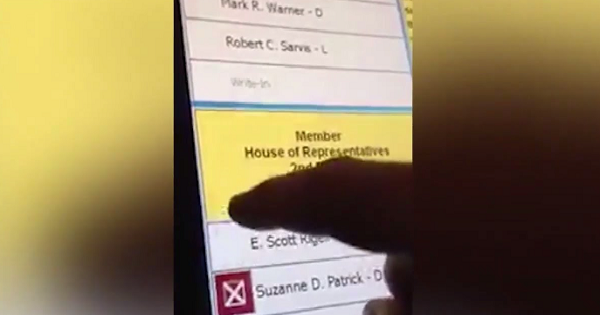
A bombshell report from Rasmussen, the veteran polling firm, says a recent survey found, “More than 20% of voters who used mail-in ballots in 2020 admit they participated in at least one form of election fraud.”
The revelation could add fuel to arguments against mail-in balloting, and rekindle suspicions about the outcome of the 2020 election.
The survey was conducted by Rasmussen and The Heartland Institute Nov. 30-Dec. 6 among 1,085 likely voters with a +/- 3 percentage point sampling error and a 95 percent level of confidence.
According to Rasmussen, Justin Haskins, director of the Socialism Research Center at the Heartland Institute, said the survey results “are nothing short of stunning.”
“For the past three years,” Haskins said, “Americans have repeatedly been told that the 2020 election was the most secure in history. But if this poll’s findings are reflective of reality, the exact opposite is true. This conclusion isn’t based on conspiracy theories or suspect evidence, but rather from the responses made directly by the voters themselves.”
The report came just days before CBS News reported how investigators have accused a 32-year-old resident of New York City’s Queens neighborhood of voter fraud in the Democratic primary in August 2022. Abdul Rahman allegedly “118 false absentee ballot applications for the Democratic primary” last year.
NBC News in Boston is reporting that two women, one an elected official, have been indicted on voter fraud charges in November’s municipal election in Lawrence, Mass. City Councilor-elect Fidelina Santiago and another woman, identified as Jennifer Lopez, each face 16 charges “including four counts each of illegal voting or attempt to vote; conspiracy to vote or attempt to vote illegally; unlawful interference with voters; and obstruction of voting.”
The indictments were announced by the office of Essex County District Attorney Paul Tucker.
Santiago won election Nov. 7.
According to the Rasmussen poll results, 30 percent of survey respondents voted by absentee or mail-in ballot in 2020. Twenty-on percent of them said they filled out a ballot, either partly or fully, on behalf of a friend or family member. Another 19 percent who cast mail-in ballots said a friend or family member filled out their ballots. Seventeen percent said they cast ballots in a state where they no longer lived.
Rasmussen also found 17 percent of those who submitted mail-in ballots in 2020 “say they signed a ballot or ballot envelope on behalf of a friend or family member, with or without their permission.” Doing this invalidates the ballot, Heartland officials noted in the Rasmussen release.
Here are some other findings of the Rasmussen/Heartland Institute poll, as they appear in a report from Rasmussen:
- Forty-six percent (46%) of those surveyed voted for Joe Biden in 2020, while 45% voted for Donald Trump. More Biden voters (36%) than Trump voters (23%) say they voted by absentee or mail-in ballot in the 2020 election. Thirty-eight percent (38%) of Democrats voted by mail in 2020, as did 24% of Republicans and 27% of voters not affiliated with either major party.
- Among those who cast mail-in ballots in 2020, nearly equal percentages of Democrats, Republicans and unaffiliated voters admitted to fraudulent activities. For example, 19% of Republicans, 16% of Democrats and 17% of unaffiliated voters who cast 2020 mail-in ballots say they signed a ballot or ballot envelope on behalf of a friend or family member. On the question of voting in a state where they were no longer a permanent resident. more Republican mail-in voters (24%) than Democrats (17%) or unaffiliated voters (11%) admitted doing so.
- Among all voters – not just those who voted by mail – 11% say a friend, family member, co-worker, or other acquaintance has admitted to them that they filled out a ballot on behalf of another person in 2020. Ten percent (10%) have a relative or acquaintance who has admitted to you that they cast a mail-in ballot in 2020 in a state other than their state of permanent residence, and eight percent (8%) say that a friend, family member, or organization, such as a political party, offer to pay or reward them for voting in the 2020 election.
- Twenty-five percent (25%) of whites, 35% of black voters, 49% of Hispanics and 41% of other minorities say they voted by absentee or mail-in ballot in the 2020 election. Minority voters are significantly more likely than whites to say they engaged in fraudulent election activities in 2020. For example, whites (3%) are much less likely than black voters (15%), Hispanics (29%) or other minorities (8%) to say someone offered to pay them to vote in 2020.
- Forty-two percent (42%) of voters under 40 say they cast a mail-in ballot in the 2020 election, as do 22% of those ages 40-64 and 30% of voters 65 and older. Younger voters are significantly more likely to admit to engaging in fraudulent election activity. For example, 31% of voters under 40 who voted by mail in 2020 say they cast a mail-in ballot in a state where they were no longer a permanent resident, compared to 11% of those ages 40-64 and just two percent (2%) of voters 65 and older.